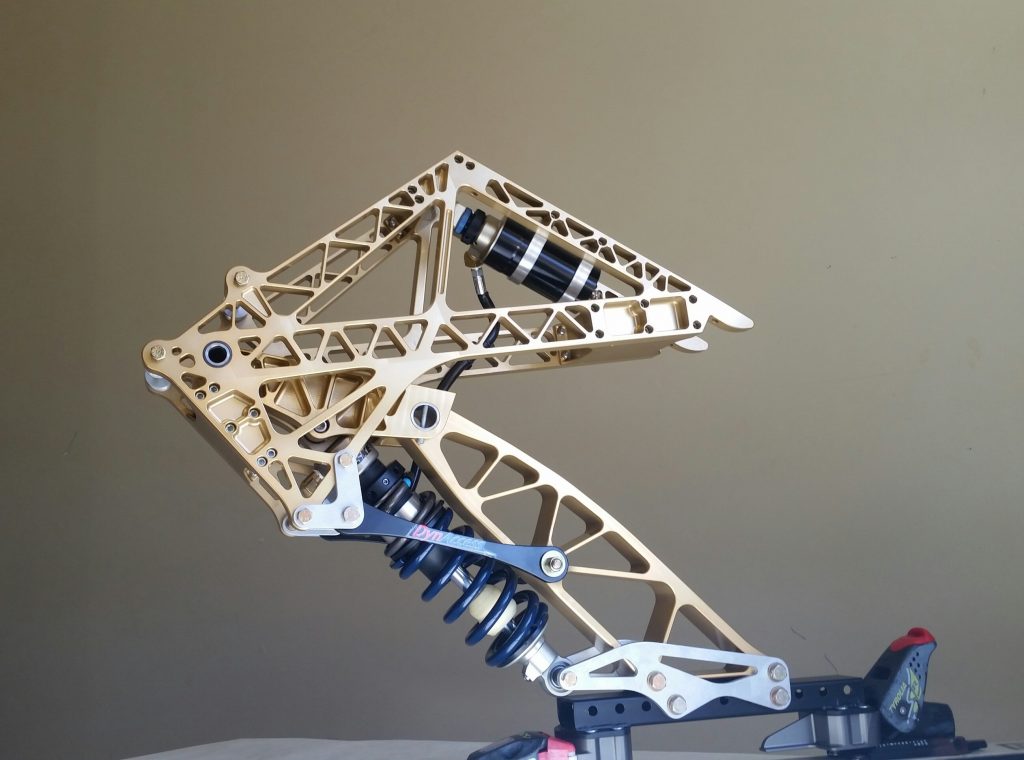igus plain bearings help adaptive skier find the fast lane
15/04/2020

21st November, 2019
Like every competitive athlete, Christopher Young stays acutely attuned to his equipment. Whether it is motorsport, cycling, skiing or any other event where equipment plays an important role in performance, athletes can feel instantly when their equipment is working properly… and when it is not.
In Young’s case, however, the margin for error is uniquely tight. As an adaptive skier, who reaches speeds of 70 mph, Young relies on his mono-ski to keep him competitive and safe. He has significant and rare athletic gifts but his racing career could come crashing down at any moment if his sled malfunctions.
“My life, literally, depends on the equipment not breaking,’’ says Young. “There are some places on ski slopes where falling is not an option. If you fall, you could drop off a cliff, it is the end, goodbye.”
For the past seven years, Young has been using equipment made by DynAccess Ltd., a Pennsylvania business that designs and manufactures outdoor equipment for physically challenged individuals and athletes. Joachim Grenestedt works as the chief engineer and product designer for DynAccess, while his wife, Channy Tokura, runs the business side.
“What makes DynAccess different is their attention to detail,’’ says Young, a five-time member of the U.S. Paralympic team and multiple Paralympic medalist. “DynAccess has elevated our sport to mainstream. Joachim’s got this idea that he’s going to be the premier mono-ski maker in the world. Channy is the best customer service representative I’ve come across for any adaptive equipment I might need.”
Grenestedt had used his engineering expertise to design land speed racers, boats and aircraft. He turned to designing mono-skis, when a former student was injured in an accident and lost the use of his legs. “I’d seen a lot of these adaptive skiing programs and it is truly amazing what some people can do,’’ Grenestedt said in an interview with Lehigh University. “Skiing is a high-adrenaline outdoor sport with lots of action, and I love it.”
While watching his student, Grenestedt noticed a number of the mono-skis were broken. “I believed we could design and manufacture a better sled,’’ he says. Tokura started DynAccess Ltd. in 2011 after receiving a Technology Transfer Grant from the Keystone Innovation Zone. Word travelled quickly in the tight-knit adaptive skiing community.
A mono-ski consists of a bucket seat and a stiff and strong frame with suspension mounted to a single ski. DynAccess offers four models of mono-skis, and they are designed to be more durable, adjustable and responsive than any other mono-ski on the market. Their equipment works well for all levels of adaptive skiers, from beginners to professionals. They can also be adjusted as a skier’s skills improve and have superior durability.
All models are equipped with Penske Racing shocks. The shock absorbers are developed specifically for mono-ski applications. Penske technicians build all the shocks to order from DynAccess and they all undergo dyno-testing. Each mono-ski package includes a frame, racing shock, thermo-formed bucket seat with foam pads, adjustable chest, lap and thigh straps, an adjustable foot rest, evacuation straps and foot piece.
Besides the shock absorbers, some other key components in the DynAccess mono-skis are products manufactured by igus. The mono-skis use iglidur X bearings, which offer universal resistance to chemicals, high compressive strength and low moisture absorption. They also offer excellent wear resistance through temperatures ranging from -100ºC to +250 ºC. The material also has extremely high tensile strength and is one of igus’ most widely used bearings for solving highly technical issues.
“We tried other components and they worked fine, but the igus products work better,’’ says Grenestedt. “They offer low wear, good strength, small size and no corrosion at a good price.”
Young says DynAccess’ attention to detail has raised the bar worldwide in the engineering of the mono-ski: “Joachim has introduced more precise techniques and engineering, and more precise bearings and suspension. It has elevated us to finally achieve parity with able-bodied skiers.”
The best in adaptive equipment.
Young was injured in a plane crash in Alaska in 1982 while serving in the United States Coast Guard. The accident left him paralysed from the knees down and partially paralysed below the waist. He was introduced to skiing and racing at a Veterans Administration Winter Sports Clinic and has gone on to achieve worldwide success.
He won his first gold medal in the Paralympic Games in 1994 and became the first Paralympian to win two medals when he won a gold and a silver in the 2002 Paralympic Games in Salt Lake City. He won the Mono Skier competition at the 2015 X Games, becoming the oldest gold medallist in the history of the competition.
On the slopes and off, Young’s physical challenges give him the perspective to know when engineering and technical expertise work together to improve his quality of life and athletic performance. He has found that with DynAccess.
“What makes DynAccess different is their equipment is a combination of superior engineering, durability and parts, coupled with the best in customer service,’’ says Young. “They have a company ethos of building better, safer equipment and they give us adaptive skiers a pretty good day on the slopes.
For more information about iglidur bearings, please visit: www.igus.co.uk/iglidur or call igus directly on: 01604 677240
The terms igus, Apiro, chainflex, CFRIP, conprotect, CTD, drylin, dry-tech, dryspin, easy chain, e-chain, e-chain systems, e-ketten, e-kettensysteme, e-skin, flizz, ibow, igear, iglidur, igubal, kineKIT, manus, motion plastics, pikchain, plastics for longer life, readychain, readycable, ReBeL, speedigus, triflex, robolink, and xiros are protected by trademark laws in the Federal Republic of Germany and internationally, where applicable. All other registered trademarks and trademarks are the property of their respective owners.
